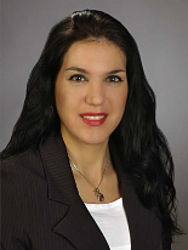WHEN DOES FISCAL REPRESENTATION COME INTO CONSIDERATION?
Fiscal representation is possible under Art. 22a Value Added Tax Act (UStG) for companies located abroad which conduct business in Germany exclusively free of VAT, and for which no input tax amounts can be deducted. The company based abroad most not have its domicile, its registered office, its top management or a branch office either in Germany or in the German tax-free areas (e.g. the Free Port).
Circular of the Federal Finance Ministry of 11 May 1999, may in particular include the following:
- Tax-free imports, not followed directly by intra-Community delivery (Art. 5 para. 1 No. 3 UStG)
- Tax-free intra-Community acquisitions, which are not followed directly by intra-Community delivery (Art. 4b No. 4 UStG)
- Tax-free cross-border transportation of objects within the meaning of Art. 4 No. 3 UStG, where the company does not acquire deliveries or services for which it can deduct input tax under Art. 15 UStG.
WHAT ARE THE PRACTICAL SITUATIONS WHERE A FISCAL REPRESENTATIVE IS RELEVANT?
The possibility of fiscal representation is of practical interest particularly for companies based in the EU which acquire goods from third countries via the Port of Hamburg.
Example 1: "Import via Germany with clearance for free circulation in the Community"
A company based in Austria agrees with a supplier from the USA on delivery of goods "ex works" or "free destination customs office Hamburg" and imports the goods into the Community territory via the Port of Hamburg. Thus in both cases the Austrian company fulfils the definition of import set out in Art. 1 para. 1 No. 4 Value Added Tax Act (UStG). This import is free of VAT under Art. 5 para. 1 No. 3 UStG if the Austrian company declares the transportation of the goods at its disposal to Austria via Germany as intra-Community supply. However, that requires the Austrian company to have its own VAT registration in Germany and to meet various declaration obligations vis-à-vis the German tax authorities (VAT Annual Declaration, Summary Report, if applicable Intrastat Declaration). This administrative effort can be avoided by use of a fiscal representative.
Example 2: "Fiscal representation for suppliers from third countries – free domicile, customs and taxes paid"
A supplier in the USA agrees with a company in Hungary on delivery of goods "free domicile, customs and taxes paid". The supplier imports the goods into Germany via the Port of Hamburg. In this case the American supplier fulfils in Germany the definition of import (Art. 1 para. 1 No. 4 in conjunction with Art. 3 para. 8 UStG). This import is free of tax pursuant to Art. 5 para. 1 No. 3 UStG if the supplier declares intra-Community supply to Austria following import. In order to claim exemption from tax, the American supplier must have its own VAT registration in Germany and must fulfil various declaration obligations vis-à-vis the German tax authorities (VAT Annual Declaration, Summary Report, if applicable Intrastat Declaration).
Here again, this administrative effort can be avoided by use of a fiscal representative.
Example 3: "Fiscal representation for suppliers from third countries – free destination customs office Germany"
Delivery "free destination customs office Germany" was agreed between the supplier from a third country, and the customer in another part of the Community.
A company U, domiciled in the USA, agrees with its customer F in France on delivery free port of Hamburg, customs duty and tax unpaid. The US company imports the goods into the Community territory via Germany. In Germany this constitutes import (as defined in Art. 1 para. 1 No. 4 UStG). This import is free of tax provided that the company declares in Germany the transport of the goods for availability in another part of the Community area as intra-Community supply. Here again, use of a fiscal representative can reduce the administrative effort (VAT Annual declaration, Summary Report, if applicable Intrastat Declaration).
Example 4: "Export via Germany with preliminary intra-Community acquisition"
A company F1 from France receives from another company F2 from France an order for delivery of goods "FOB or FAS Port of Hamburg". The goods are then exported to Japan (third-country territory). Delivery by F1 to F2 is free of tax, as intra-Community supply, because F2 uses a German VAT Reg. No. The subsequent intra-Community acquisition by F2 if free of tax pursuant to Art. 4b UStG. For this purpose, a fiscal representative could act for F2 in Germany.
The same thing applies if a company F domiciled in France agrees with a customer B domiciled in Belgium on delivery "free Port of Hamburg". After delivery, the Belgian customer B then exports the goods to Japan (third country) for its customer J. B acquires the goods free of tax by way of intra-Community acquisition (Art. 4b No. 4 UStG) and then exports them free of tax (Art. 6 UStG) with the obligation for submission of an annual VAT Declaration and if applicable Intrastat Declaration.


